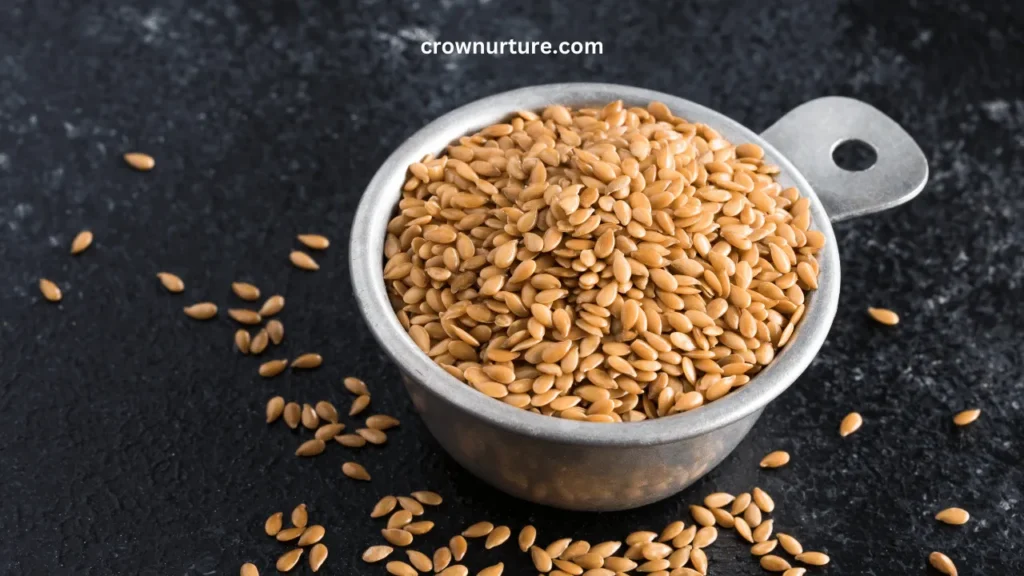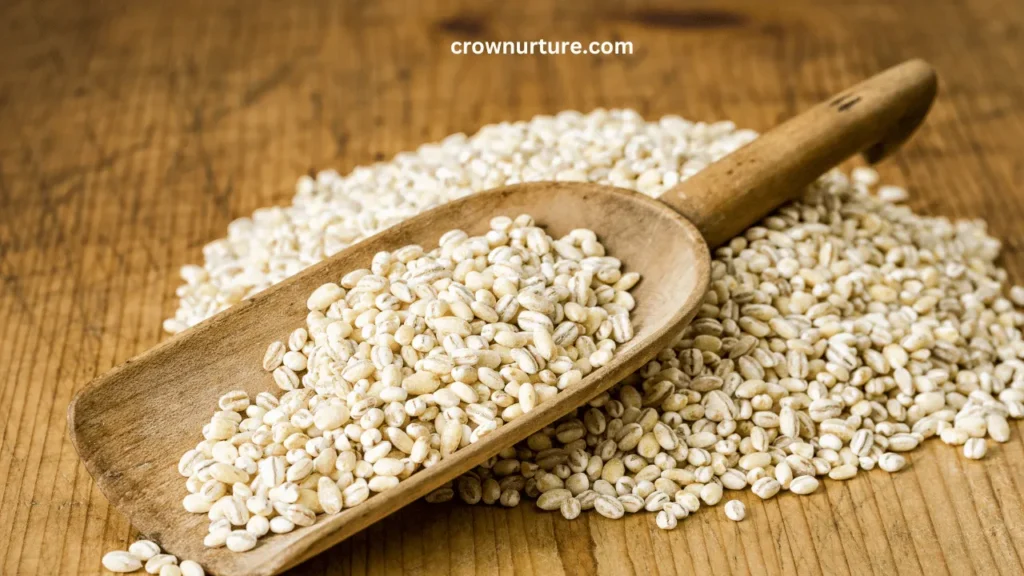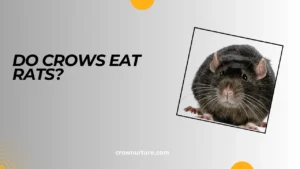Crows are among the most intelligent birds on the planet, often celebrated for their problem-solving abilities and adaptability. Known to thrive in urban and rural areas alike, these resourceful creatures have an incredibly varied diet that has intrigued researchers and bird enthusiasts for decades.
But one question that frequently arises is whether crows can eat dried barley—a grain that humans have cultivated for thousands of years. Understanding the dietary habits of crows goes beyond mere curiosity. These birds play a crucial role in ecosystems and agriculture, acting as both helpers and potential nuisances.
For farmers, the presence of crows near barley fields can lead to crop losses, while bird lovers often wonder whether feeding them grains like barley is healthy and safe. This makes the relationship between crows and barley a topic worth exploring in depth.
In this article, we’ll examine how barley fits into a crow’s diet, its nutritional value, the risks and benefits it offers, and its broader ecological implications. Whether you’re a farmer, a bird enthusiast, or simply curious about wildlife, this guide will provide the insights you need to understand how dried barley impacts crows.

Contents
1. Crows’ Diet: A Wide Palette of Choices
Crows are omnivores, which means they can eat both plant-based and animal-based foods. Their diet consists of insects, small animals, fruits, nuts, and seeds, making them highly versatile feeders. This flexibility allows them to adapt to a wide range of environments, from bustling cities to farmlands.
Although crows are opportunistic eaters, they tend to favor foods that provide protein and energy. For instance, they often scavenge meat, feast on insects, and enjoy nutrient-rich fruits. However, grains and seeds, such as barley, become a significant part of their diet when other food sources are scarce.
Their ability to adapt their diet to what’s available has allowed crows to coexist with humans, often feeding on agricultural crops like barley, corn, and wheat. This opportunism can sometimes lead to conflicts with farmers, but it also highlights their remarkable survival skills.
2. Nutritional Value of Dried Barley for Crows
Barley is a nutrient-rich grain, offering several benefits to crows when consumed in moderation. It is primarily composed of carbohydrates, which provide a quick source of energy for active birds like crows. These birds expend a lot of energy throughout the day as they fly, forage, and interact with their environment.
In addition to carbohydrates, barley contains moderate levels of protein, which is essential for muscle repair and feather growth. While it doesn’t match the protein content of insects or meat, it can still contribute to a crow’s dietary protein needs.
Another key benefit of barley is its fiber content, which aids in digestion. Fiber helps maintain a healthy digestive system, particularly for omnivorous birds like crows that consume a variety of food, some of which might be harder to digest. Barley’s fiber can complement their natural diet and help them process other foods effectively.

3. Can Crows Digest Grains Like Barley?
Crows have a specialized digestive system that enables them to process a wide range of foods, but grains like barley pose unique challenges. Unlike some birds, crows lack a crop, a storage organ that allows food to soften before digestion. This means that dried barley grains might be harder for them to process directly.
The gizzard, a muscular part of their digestive tract, helps crows break down tough food items, including grains. However, barley’s hard hulls could require extra effort for grinding, and in some cases, the hulls may remain undigested. For smaller crows, the size and toughness of barley grains might also increase the risk of choking.
Interestingly, crows are known to use their intelligence to overcome such challenges. They might soak barley in water to soften it, making it easier to consume and digest. This behavior demonstrates their ability to adapt their feeding strategies to the nature of the food available.
4. Ecological Implications of Crows Eating Barley
When crows feed on barley, their behavior can have both positive and negative impacts on the environment. In agricultural settings, crows often become a nuisance by damaging barley crops. Large flocks can consume significant portions of a field, leading to financial losses for farmers.
On the flip side, crows can also serve as seed dispersers. By carrying barley grains to new locations, they may inadvertently contribute to the spread of barley plants. This can help barley grow in areas where it might not have been sown intentionally.
Furthermore, crows play a critical role in maintaining the ecological balance. By feeding on agricultural waste and pest insects, they can help reduce crop pests. Their presence in farmlands underscores the importance of striking a balance between protecting crops and allowing wildlife to thrive.
5. Potential Risks and Benefits for Crows
Feeding on barley presents both opportunities and challenges for crows. The nutritional benefits of barley—its carbohydrates, protein, and fiber—make it a valuable food source, especially during times when other food is scarce. Barley can help sustain crows’ energy levels and support their overall health.
However, the risks cannot be ignored. Dried barley grains can pose a choking hazard, particularly for smaller crows or juvenile birds. Additionally, over-reliance on barley might lead to a nutrient imbalance, as it lacks some of the essential vitamins and minerals found in fruits, insects, and meat.
To minimize these risks, offering barley in a softened or cooked form can make it safer for crows to consume. This simple adjustment allows them to reap the benefits of barley without the associated dangers.
Conclusion
Crows are highly adaptable birds capable of eating a wide range of foods, including dried barley. While barley provides important nutrients such as carbohydrates, protein, and fiber, its hard texture can present challenges for digestion and even pose choking risks. For bird lovers looking to feed crows, preparing barley by soaking or cooking it can ensure that it is safe and beneficial for these intelligent birds.
For farmers, the relationship between crows and barley is more complex. While crows can cause crop damage, they also contribute to the ecosystem by dispersing seeds and controlling pests. Balancing these interactions requires careful management, such as using deterrents or creating feeding areas away from crops.
Ultimately, understanding crows’ dietary habits is crucial for fostering coexistence between humans and these remarkable birds. Whether you’re protecting your crops or observing wildlife, recognizing the role of barley in a crow’s diet highlights the intricate connection between nature and agriculture.
FAQs
1. Can crows eat barley directly from the field?
Yes, crows often eat barley directly from fields, especially when they find it accessible and other food sources are limited.
2. Is barley a healthy food for crows?
Barley is a good source of carbohydrates, protein, and fiber, making it a beneficial food in moderation.
3. Are there any risks to crows eating barley?
Yes, dried barley grains can pose choking hazards and may be difficult for crows to digest due to their hard hulls.
4. Do crows prefer barley over other grains?
Crows do not show a strong preference for barley but will eat it opportunistically, along with other grains like wheat and corn.
5. How can farmers prevent crows from eating barley crops?
Farmers can use scarecrows, reflective tape, netting, or noise devices to deter crows from barley fields.
6. Can crows digest raw barley grains?
Crows can digest raw barley to some extent, but the tough outer hulls may pose challenges. Soaking or cooking the grains can improve digestibility.








